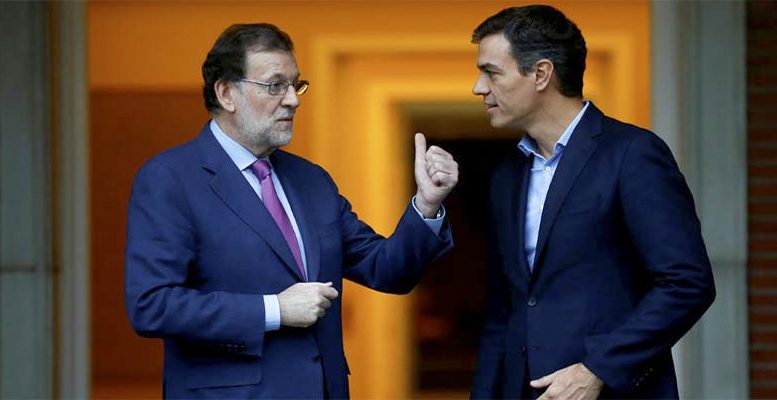The government is facing a motion of censure. In the Spanish parliamentary system, if a motion of censure is presented it requires that an alternative candidate be put forward. The candidate will have his own programme to substitute, if successful, the government against which the action is being taken. And in order to be successful, he/she needs to obtain the backing of an absolute majority in Parliament, namely from 176 MPs (although to present the motion of censure only 35 are required).
Taking into account the current composition of parliament, Bankinter’s experts provide below the three possible numeric combinations needed for the motion of censure to go through. In addition, the obstacles which each alternative would face depending on the declarations made by the different parties up to now. And lastly, the estimated probability (high/medium/low) of the motion of censure going ahead in light of the afore-mentioned obstacles:
- Socialist PSOE (85 MPs) + Lefitist Podemos (71) + Liberal Ciudadanos (32) = 188. Obstacles: Ciudadanos (Cs) will not support a PSOE Presidency backed by Podemos. They would only support a motion of censure to call elections, but in practice the Government can only call elections before a motion of censure is presented. The law prevents it from doing that once the motion of censure has been presented and during the debate and voting on the issue. Spanish parliamentary legislation establishes that a motion of censure should lead, if it’s successful, to the appointment of a new government to substitute the current one. For that reason, as it proposed the motion, PSOE has also had to put forward an alternative candidate with his own government programme. This should be accepted (and implicitly supported) by the other parties which vote in favour. It seems highly unlikely that Cs will support a PSOE government backed by Podemos. Whatsmore, the interests of PSOE and Podemos could in practice be compatible, but not those of Cs and PSOE. The latter party wants to govern for a few months and only after calling elections. This is compatible with Podemos, which doesn’t want elections immediately because they are in a weak position. But not with Cs, as it’s not in their interests to take their competitor into government, where it could consolidate and improve its level of voting intention. So Cs only want to support a motion of censure which leads to an immediate early election call (the so-called “instrumental motion”). The likelihood of success of this option: Low.
- PSOE (85 MPs) + Podemos (71) + Catalan separatists ERC (9) + Catalan nationalists PDCat (8) + Basque nationalists PNV (5) = 178. Obstacles: the PNV has just supported the 2018 Budgets, which include very favourable financial treatment for the Basque country. So if it supports the motion of censure, it would renounce this. Furthermore, it seems likely that the demands of the separatists (which would not be limited to demanding the withdrawal of the implementation of Art. 155 of the Catalan Constitution) are unacceptable for PSOE. Probablility: Medium.
- PSOE (85 MPs) + Podemos (71) + ERC (9) + PDCat (8) + Basque separatists Bildu (2) + Canary Coalition CC (1)= 176. Obstacles: CC has said it will not pact with independent parties. In addition, the same limitation on the separatist demands in the previous option (2). Probability: Mid/Low
Objectively speaking, the probability of the motion of censure being successful seems to be between medium and low. That said, once the debate and the voting is over, even if this motion fails, the political environment will be less stable for the current government. In spite of that, we believe Spain’s risk premium will tend to narrow somewhat in the short-term, towards 100 bp vs 110 bp on Friday. But it will remain deteriorated compared with the previous situation. The debate and the voting will be held on 31 May and 1 June, respectively. There has to be a minimum of 5 days between the presentation of a motion of censure and the start of the parliamentary proceeding.





